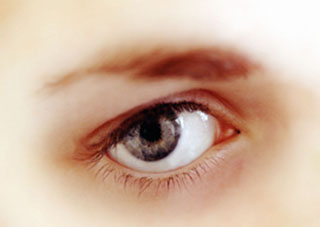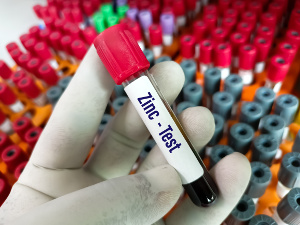Folic acid supplements reduce the risk of glaucoma

In fact, folic acid from dietary supplements was more effective in reducing the risk of glaucoma than folic acid from the diet. It may be due to the oddity that the form of folic acid we get from supplements is the better absorbable than folic acid from the diet.
The researchers also looked at the intake of the B vitamins B6 and B12, which are also involved in reducing blood levels of homocysteine, but they found no association between glaucoma and these two vitamins. On the other hand, they found that folic acid appeared to reduce the risk of glaucoma. They also found that participants who developed glaucoma had higher levels of homocysteine in their blood than the control group.
Data from health professionals
The study's raw data are derived from two studies (Nurses' Health Study and the Health Professionals Follow-up Study) including respectively female nurses and male healthcare professionals, who were all 40 years or older. Only those who had completed a questionnaire about their diets and had undergone an eye examination were included in the new study, which was attended by some 80,000 women and 40.000 men.
Folic acid deficiency
Vitamin B6, folic acid and vitamin B12 are all involved in lowering the content of the harmful substance homocysteine in the blood, but where most participants got the recommended amount of B6 and B12 from the diet, more than half of the participants did not get the recommended amount of folic acid from the diet. Folic acid is commonly found in fruits and vegetables.
About glaucoma
There are several forms of glaucoma. Common to them are an elevated eye pressure, which in worst case can cause blindness. There are two main types of glaucoma: narrow-angle glaucoma where there is a sudden deterioration in the opportunity of the aqueous humor to flow through the eye, and open-angle glaucoma, where the pressure in the eye gradually increases over several years as the pores leading the aqueous humor from the eye are clogging up.
The type of glaucoma that folic acid seems to counteract is called exfoliation glaucoma. It is the most common form of secondary open-angle glaucoma. That the glaucoma is secondary means it is developed due to other eye disorders. By exfoliation glaucoma you have pigment substances and various proteins clogging the draining of the aqueous humor in the eye.
Ref.
Kang JH, et al. A Prospective Study of Folate, Vitamin B6, and Vitamin B12 Intake in Relation to Exfoliation Glaucoma or Suspected Exfoliation Glaucoma. JAMA Ophthalmology 2014. E-pub ahead of print.
Homocysteine is a non-beneficial amino acid which is formed in the body as a result of the normal metabolism. Homocysteine may, however, be transformed into healthy amino acids, if we have sufficient amounts of certain vitamins. It is mainly vitamin B6, folic acid and vitamin B12. Recent research suggest that also vitamin C to some degree can convert homocysteine.
The most absorbable folate source: Folate mono-glutamate.
- Created on .








 Zinc has many different functions in the immune defense and a zinc deficiency increases the risk of infections and diarrhea, which are global causes of disease and mortality. According to a study published in Physiological Reports, being zinc-deficient can also lead to influenza complications such as bacterial pneumonia that is potentially lethal. The authors assume that zinc plays a key role in the body’s defense against respiratory infections, including COVID-19. They write that factors such as unhealthy diets, ageing, alcoholism, intestinal diseases, and various types of medicine can increase the body’s need for zinc.
Zinc has many different functions in the immune defense and a zinc deficiency increases the risk of infections and diarrhea, which are global causes of disease and mortality. According to a study published in Physiological Reports, being zinc-deficient can also lead to influenza complications such as bacterial pneumonia that is potentially lethal. The authors assume that zinc plays a key role in the body’s defense against respiratory infections, including COVID-19. They write that factors such as unhealthy diets, ageing, alcoholism, intestinal diseases, and various types of medicine can increase the body’s need for zinc.

 "After about one week of taking the Q10 supplement I could feel a huge difference," says 23-year old Alan Piccini, who has been suffering from extreme fatigue and muscle aches ever since he was a child.
"After about one week of taking the Q10 supplement I could feel a huge difference," says 23-year old Alan Piccini, who has been suffering from extreme fatigue and muscle aches ever since he was a child. “Taking capsules with co-enzyme Q10 has freed me of the severe side effects of my cholesterol lowering medicine,” Mrs Franken explains.
“Taking capsules with co-enzyme Q10 has freed me of the severe side effects of my cholesterol lowering medicine,” Mrs Franken explains.